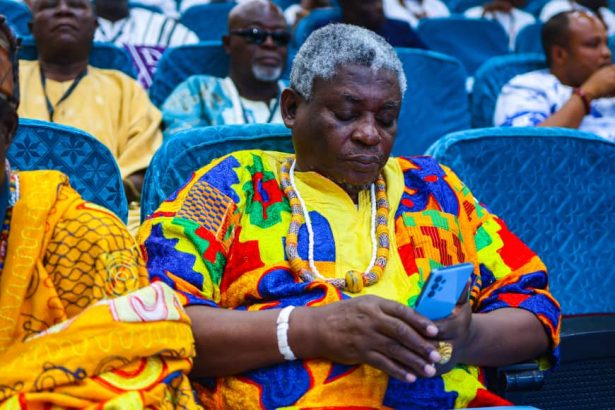Calls for the establishment of a GaDangme Language Academy are growing louder as concerns deepen over the gradual decline of the Ga language in schools, markets, the media, and everyday communication within GaDangme communities.
Historical records show that the last major state-backed intervention to regulate and standardise Ga occurred nearly three decades ago.
In 1966, the Ghana Bible Society, in collaboration with Ga-speaking churches, established an Orthographic Committee to revise the 1907 edition of the Ga Bible.
A subsequent Ministerial Sub-Committee, chaired by Dr. M. Modjabeng, then Commissioner for Education, reviewed the work and recommended changes expected to guide teaching and writing.
Among the recommendations were the retention of “ts” and “ŋ”, the replacement of “ʃ” with “sh”, and the substitution of “dz” with “j”.
The committee also called for a comprehensive review of word division, vowel length, tone marking, consonant clusters, and suppressed vowels.
These revisions later formed the basis of a reference guide titled “Ga Wiemɔ lɛ Ŋmaa,” A Handbook on the Writing of Ga Language, published by the Bureau of Ghana Languages in 1996. After the publication, development stalled.
Since then, linguistic growth, literary production, and academic research in Ga have slowed to the point of near dormancy. Textbooks are scarce, and the teaching of Ga grammar and literature in schools has sharply declined. As a result, many GaDangme communities today communicate predominantly in Akan, even in traditionally Ga spaces such as markets, schools, and public transport.
This shift was highlighted recently in a public debate over replacing the widely used Akan word “Akwaaba” with its Ga equivalent “Oobakɛ” a dispute many describe as a wake-up call to the risk of cultural erasure.
Although language naturally evolves through culture, technology, and social interaction, advocates argue that change must be guided not left to the chaos of neglect.
Countries like France, Germany, Spain, and Britain have long-established institutions such as the Académie Française and the Real Academia Española to safeguard linguistic purity while modernizing vocabulary.
These bodies work with publishers, educational institutions, and dictionary authorities to monitor and refine language use.
Unfortunately, Ghana has no such framework for Ga. Many language experts fear that without intervention, Ga may slowly fade into irrelevance.
A few years ago, media personality Moses Adjei of Obonu TV attempted a modern solution by forming a WhatsApp platform to compile scientific vocabulary in Ga.
Notable scholars, including Nii Kwarde Ntre, Nii Kwei Mensah, Ade Sawyerr, and Jordan Dodoo, joined the effort.
However, all accumulated data was lost after the hosting server crashed, erasing months of work and highlighting the absence of a formal institutional archive.
Despite the challenges, some progress is being made. A GaDangme advocacy group continues to push for the reintroduction of GaDangme languages into basic and senior high school curricula, as well as the deployment of Ga language teachers to Ga communities. The group has also secured bursaries and full scholarships for university students studying Ga.
Language advocates are urging that such efforts must not be allowed to wither. They are calling for a GaDangme Language Academy or a permanent development committee that will:
Preserve and protect the purity of the language
Maintain grammatical and vocabulary standards
Compile an updated Ga dictionary
Develop policies for new terminology, including scientific and technological vocabulary
While funding remains a potential challenge, proponents believe support can be sourced from international institutions such as UNESCO, NGOs, cultural preservation funds, and local community organisations.
The call is therefore going out to Ga scholars, chiefs, grammarians, writers, linguists, teachers, and cultural custodians: unite, organise, and safeguard the language before it fades into history.






